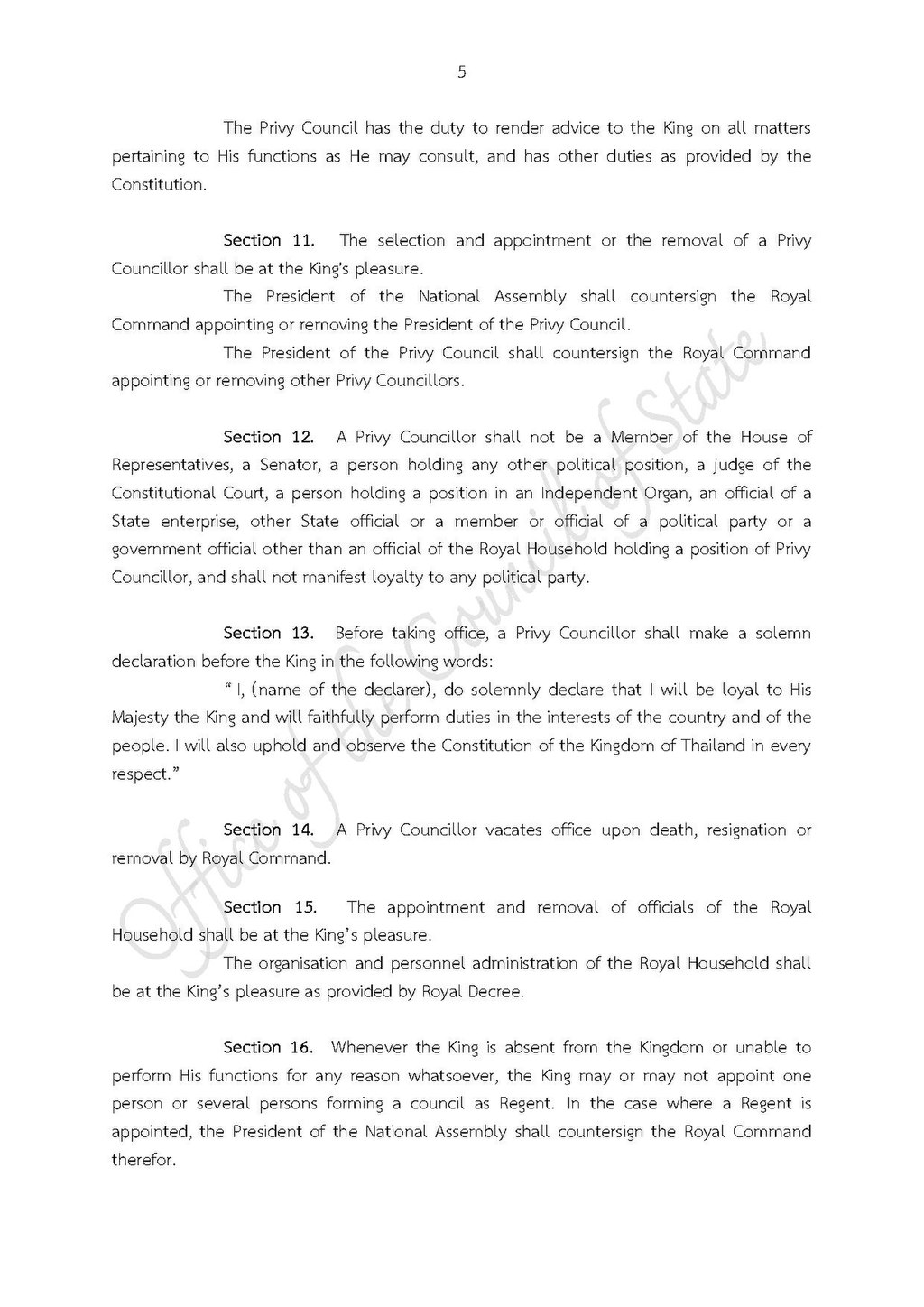The Privy Council has the duty to render advice to the King on all matters pertaining to His functions as He may consult, and has other duties as provided by the Constitution.
Section 11. The selection and appointment or the removal of a Privy Councillor shall be at the King’s pleasure.
The President of the National Assembly shall countersign the Royal Command appointing or removing the President of the Privy Council.
The President of the Privy Council shall countersign the Royal Command appointing or removing other Privy Councillors.
Section 12. A Privy Councillor shall not be a Member of the House of Representatives, a Senator, a person holding any other political position, a judge of the Constitutional Court, a person holding a position in an Independent Organ, an official of a State enterprise, another State official or a member or official of a political party or a government official other than an official of the Royal Household holding a position of Privy Councillor, and shall not manifest loyalty to any political party.
Section 13. Before taking office, a Privy Councillor shall make a solemn declaration before the King in the following words:
“I, (name of the declarer), do solemnly declare that I will be loyal to His Majesty the King and will faithfully perform my duties in the interests of the country and of the people. I will also uphold and observe the Constitution of the Kingdom of Thailand in every respect.”
Section 14. A Privy Councillor vacates office upon death, resignation or removal by Royal Command.
Section 15. The appointment and removal of officials of the Royal Household shall be at the King’s pleasure.
The organisation and personnel administration of the Royal Household shall be at the King’s pleasure, as provided by Royal Decree.
Section 16. Whenever the King is absent from the Kingdom or unable to perform His functions for any reason whatsoever, the King may appoint one person or several persons forming a council as Regent. In the case where a Regent is appointed, the President of the National Assembly shall countersign the Royal Command therefor.
